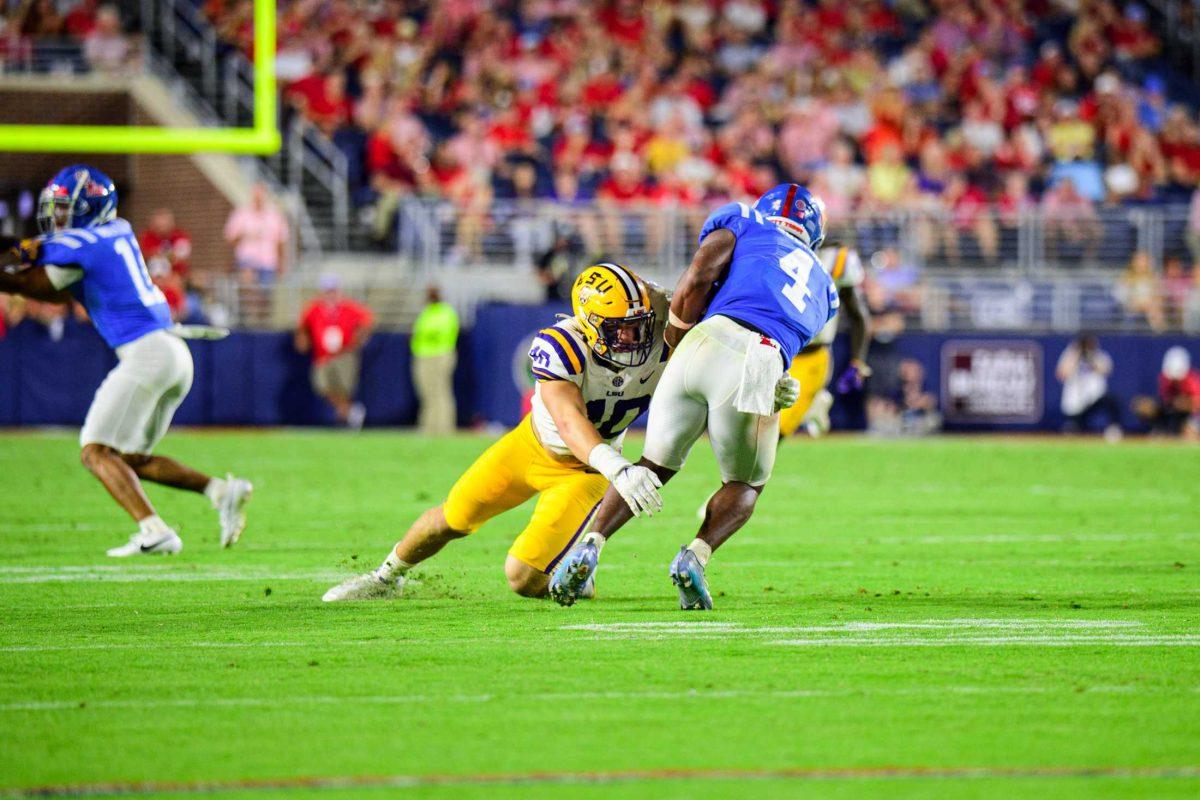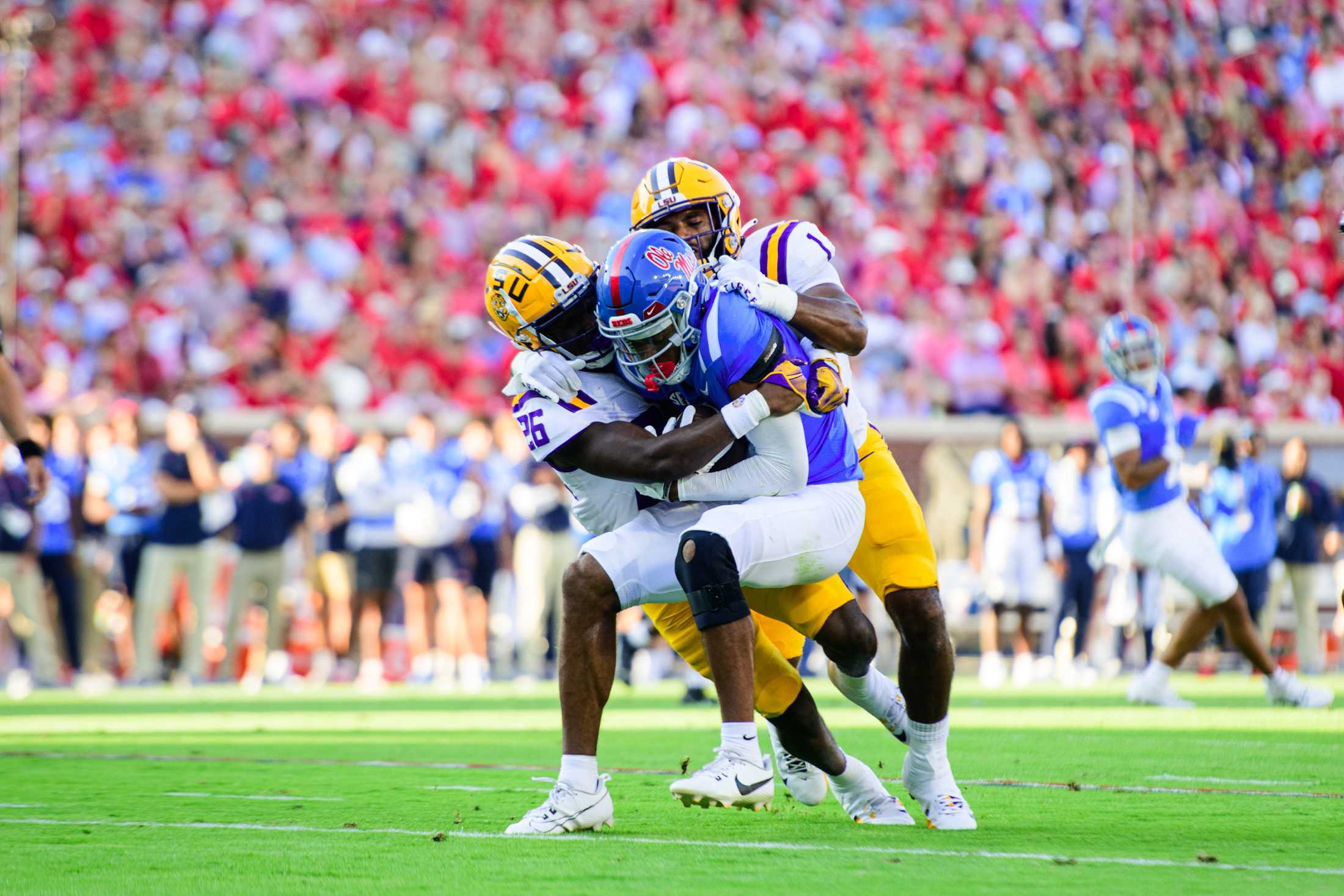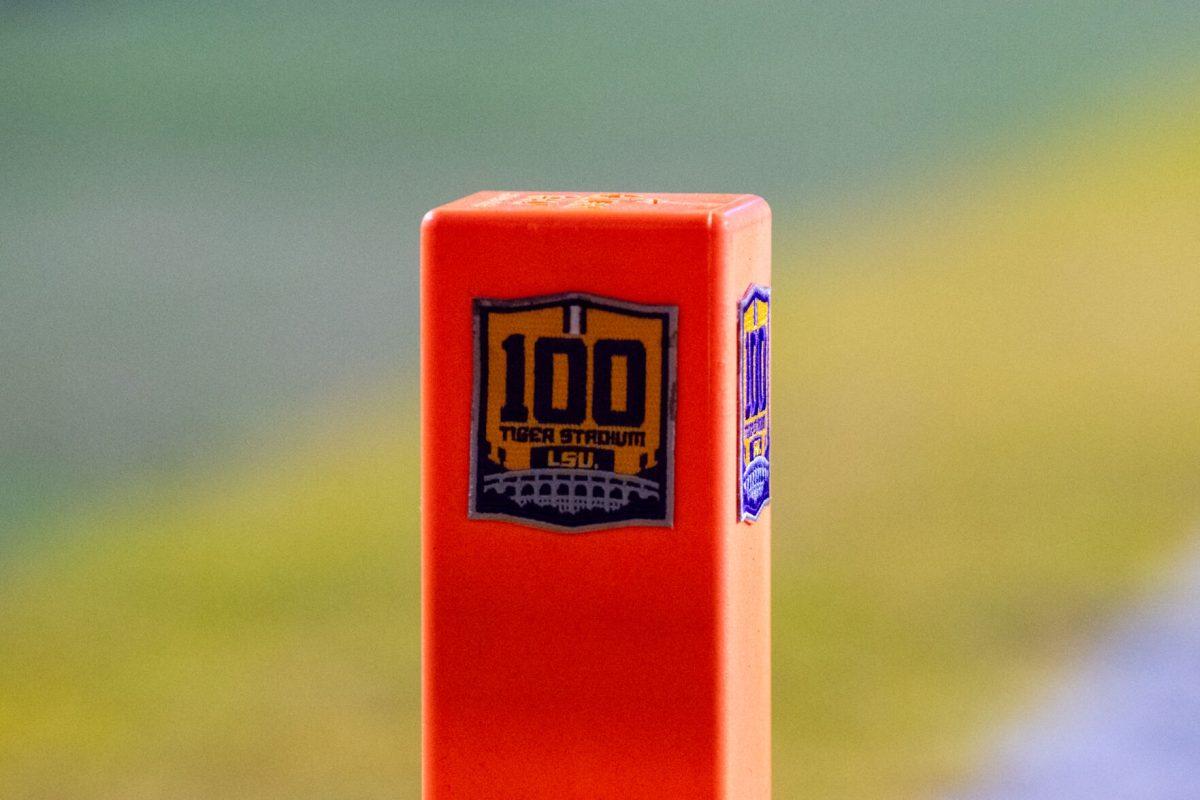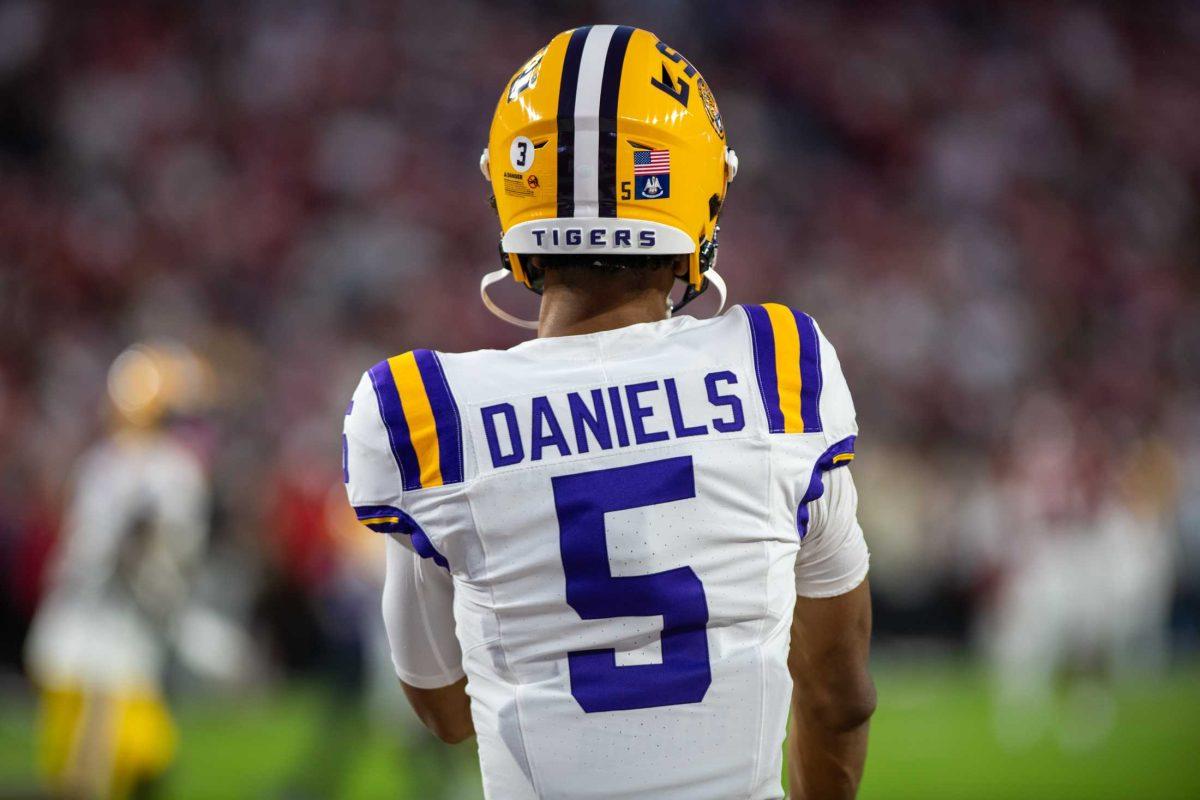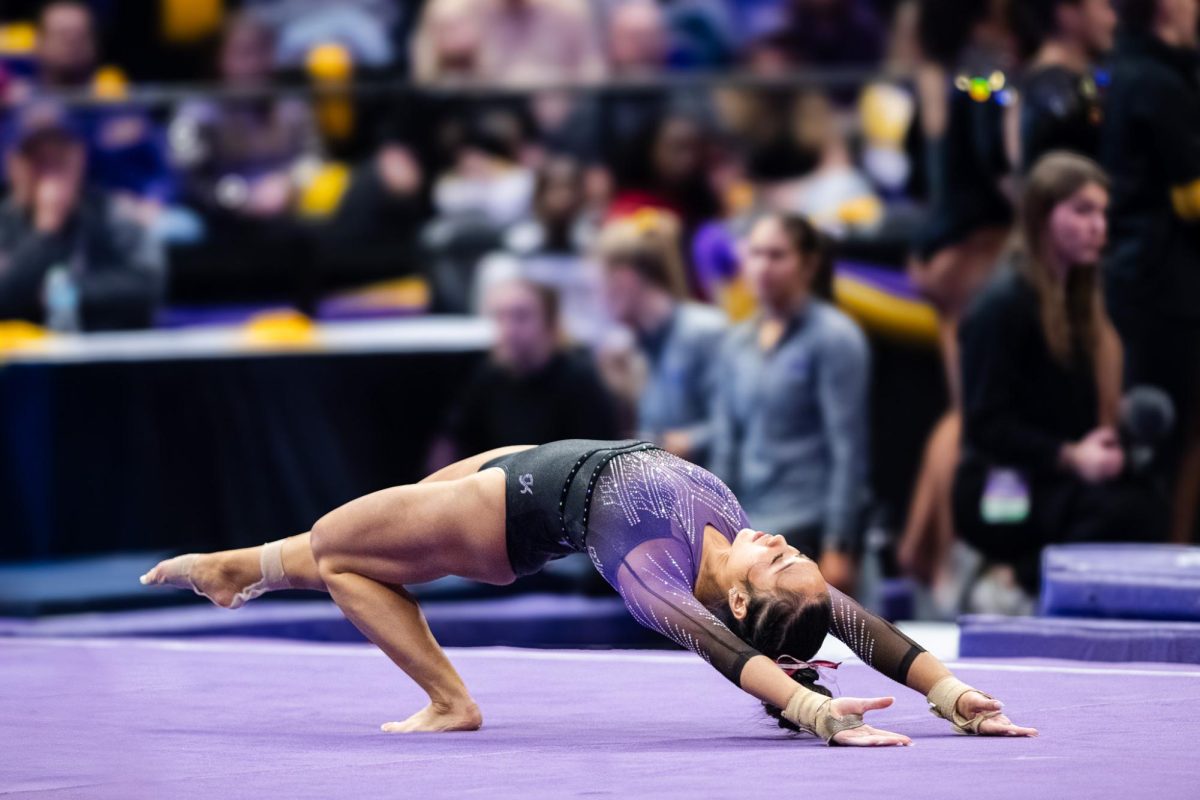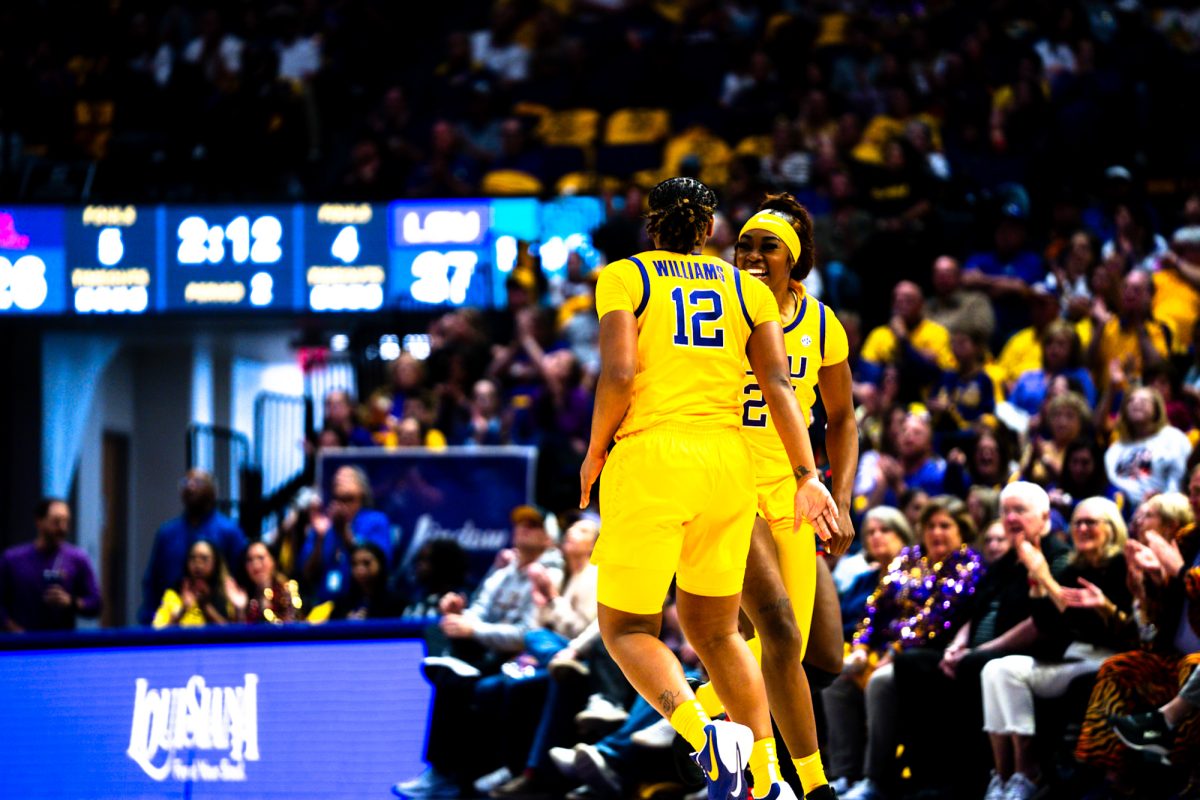Baton Rouge is not prone to earthquakes but every Saturday, during a particular season, time stands still and the ground begins to rumble as over 100,000 passionate fans take over the city.
The fans bleed purple and gold. Their passion is unmatched, but the same shower of support can quickly become a storm of criticism, the most recent being how LSU chose to utilize freshman linebacker Whit Weeks.
The discourse started when Omar Speights, LSU’s starting linebacker, went down with an injury. Weeks excelled in his absence, and now fans want him as a full time starter.
Even with Speights returning, they’ve shown no signs of backing down.
Good linebackers are secure tacklers. That term gets thrown around a lot, but being a secure tackler isn’t just “wrapping up.” Preventing yards after contact is a major part of secure tackling. Giving up yards after contact is a serious issue, and it’s one of the major arguments in the Weeks versus Speights debate.
The Tigers are unlikely to move on from Speights, per head coach Brian Kelly. He’s a senior with good size, good production and a lot of experience. But he hasn’t played well since returning from an injury. Leaning on him isn’t a bad decision, but LSU doesn’t have to use him exclusively.
Speights is great at reaching the ball carrier, and his issues preventing yards after contact could be related to his injury. He possesses traits that only a seasoned player could have, such as knowing when to engage with certain blockers and how to read pre-snap alignments.
Still, the argument against him has a lot of validity if he continues to play at the level he’s at. Against Auburn, he had a few questionable plays in the first half.
Auburn was facing a second-and-12, with six minutes left in the first quarter. It ran a bubble-screen with the running back as the receiver. The tight-end moved out wide to block and Speights engaged.
He had two other defenders and one more closing in. Once the back was even with his blocker, Speights should have disengaged. If done so, the play would have resulted in a loss. Instead, Auburn gained 2 yards on the play.
In Speights’ defense, this move prevented a cut back lane. However, the lane wasn’t easily available regardless of his positioning.
This wasn’t his only questionable play. The start of the second quarter had another mistake by Speights. Auburn was facing third-and-3 in the red zone. Payton Thorne rolled out and hit the tight end, who leaked out, converting the third down. Thorne had three LSU defenders in pursuit of him: Major Burns, Ovie Oghoufo and Speights.
Speights was the farthest pursuing defender. He saw the tight end enter open space. If Speights adjusted, Auburn would’ve been forced to settle for a field goal. Instead, the conversion put Auburn in the perfect position to score its first touchdown of the game.
Speights hasn’t performed to the level he was advertised. However, starting Weeks is a risky decision.
Weeks is a strong and disruptive player. He gets into the backfield quickly and reads the field, post-snap, well. He has the potential to be a full-time starter, but he’s not ready yet.
Linebackers are responsible for a lot of tasks. The tasks get easier with experience, and this is Weeks’ main issue—he’s very inexperienced.
While Weeks had an impressive showing against Arkansas, it could’ve been better. He had two plays in near succession where his attacking angles were a major issue.
With nine minutes left in the first quarter, Arkansas was facing a first down in the red zone. K.J. Jefferson took the snap on a designed run.
As he began to run right, the defense followed. Weeks beat both blockers but became too sharp in his attacking angle. He tripped and removed himself and another defender from the play.
It was a gain of five on what could’ve been a defensive stop.
The second occurred on first-and-goal. Arkansas ran another designed run for Jefferson, who had running back Rashod Dubinion as his lead blocker.
As Weeks shot into the backfield, he unnecessarily engaged Dubinion. He had an open lane to Jefferson. The play was a minimal gain, but could’ve been easily blown up.
Missing big plays like these are from a lack of experience. Angles and windows are different in college and in high school. Not understanding that is how bad plays can happen.
Somehow, the defense has to figure out how to get both players on the field, and that’s much easier said than done.
Both players are middle linebackers playing in a scheme that normally only uses one. This doesn’t mean they can’t be on the field together, but it’s a sizable roadblock. Defensive packages can change the scheme; LSU has to have a couple that features both players on the field.
Speights is a talented linebacker. He processes plays quickly; defenses follow the leader. If they see Speights commit to a play, they will follow. When he plays, the defense swarms the ball-carrier much faster.
Weeks doesn’t have the experience to identify plays pre-snap, but he reads the active field well.
Playing both Speights and Weeks gives the Tigers more firepower on a struggling defense. The argument shouldn’t be who to play, but how to play both.



